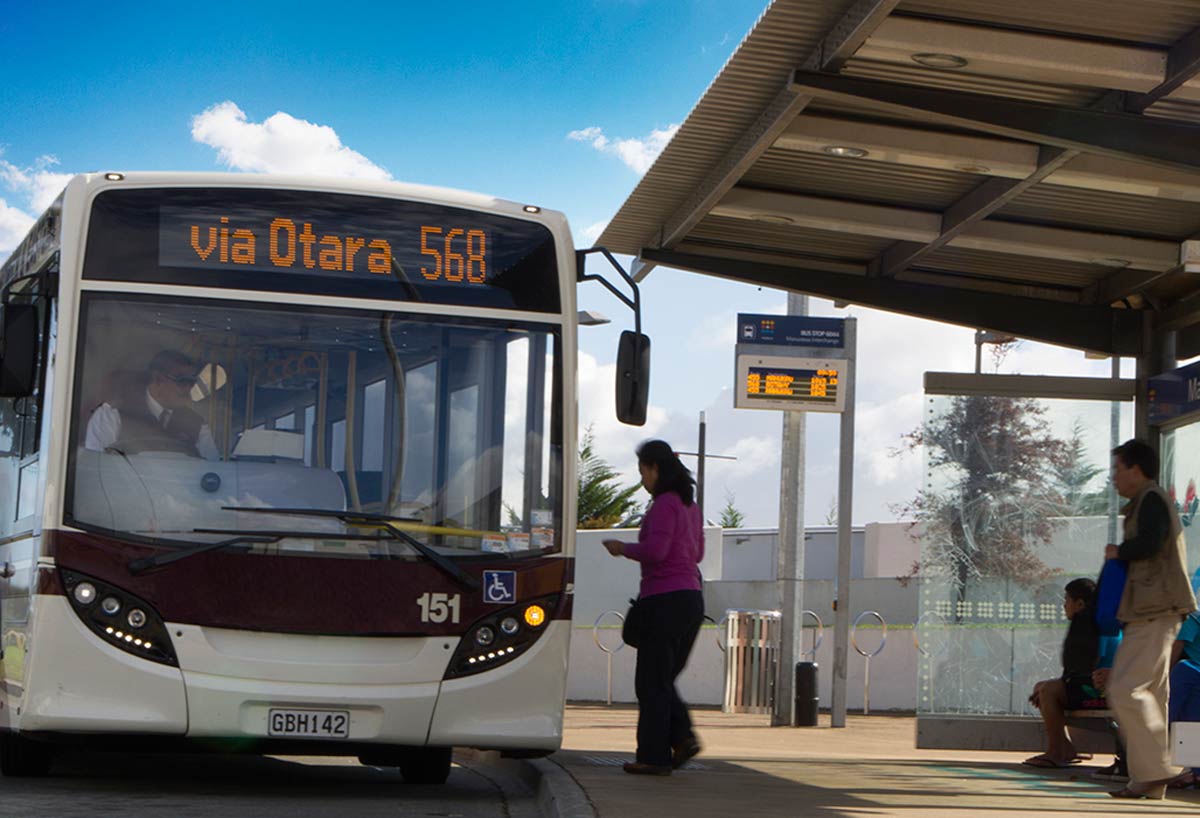Table of Contents

In an attempt to reduce carbon dioxide emissions, the government is working very hard to force us all onto public transport. For many, the cost savings, if there are any, do not outweigh the inconvenience, nor the additional time needed to travel by bus or train. Many people consider it is not worth it, particularly for the morning and evening commute.
Well, things are about to get harder for those people who do use public transport, because new rules that come into effect next month, will mean the loss of bus services in Auckland… and almost certainly in other cities as well.
quote.Auckland might need 90 extra buses and up to 350 extra drivers to maintain services after new employment laws take effect next month.end quote.
Under changes to the Employment Relations Act, all workers, including previously-exempt bus drivers, must have a 10-minute break after two hours of work and a half-hour break after four.
This will break the current pattern where drivers can work continuously for up to five-and-a-half hours.
I apologise for finding this funny, but no one in this government ever seems to be able to avoid the law of unintended consequences… or, more accurately, to manage to pass a decent piece of legislation. If one intention in this legislation was to end the exemption for bus drivers, then what did anyone in government think was going to happen to public transport use? People are generally expected to arrive at work on time, and most people will go to extraordinary lengths to achieve that.
quote.Auckland Transport said it did not yet have a clear picture of what would happen to its services from May 6.
However, it said estimates provided by three operators in the city suggested 1400 services a day could be at risk.end quote.
So how is that plan to get everyone out of their cars working out then?
quote.“There are no spare buses, and we are all aware there is a driver shortage”, Stacey van der Putten, the group manager for Metro Services, said.end quote.
About one per cent of Auckland’s 12,500 daily bus services were currently being cancelled due to a shortage of drivers, although Auckland Transport said there was gradual improvement.
The situation is even more dire in Wellington, where a chronic driver shortage has been in existence for some time. That, on the back of the stupidest timetable rescheduling in the history of modern man, where people who used to take a bus to work and arrive in 20 minutes, now have to take 3 buses and it takes an hour and 25 minutes, means that public transport in Wellington is about to fall even further into disarray, if that is actually possible.
quote.A meeting between bus companies, unions, Transport Minister Phil Twyford and Workplace Relations and Safety Minister Iain Lees-Galloway will be held on Wednesday evening.end quote.
The Bus and Coach Association said it wanted more time to implement changes and was worried about the higher costs it would face delivering services contracted at fixed prices for regional councils.
The prescribed breaks could be varied if agreements were reached between companies and drivers.
However, the two main unions said no talks had begun, five weeks out from the new regime.
“We are in the dark”, First Union bus organiser Emir Hodzic said.
“The companies are almost trying to fabricate a crisis around this ? they’ve had plenty of time to prepare.”
There is no fabrication. The driver shortage is primarily due to poor pay and split shifts, meaning that bus driving is not a favoured career choice for many. Wellington has been struggling with these issues for some years. The changes to working conditions are just going to make a bad situation much worse and in the end will result in even more congestion in the area. I dare not even imagine what it will be like in Auckland.
quote.The law changes add to the tension building over the system under which public transport is provided, and which trade unions argue has lowered wages and working conditions for drivers.end quote.
Isn’t that the union’s job ? to negotiate better pay and conditions for its workers?
quote.The Public Transport Operating Model, or PTOM, was a policy rolled out by the previous Government from 2012, to bring greater competition for routes tendered by regional councils.end quote.
Under pressure from the unions, the Minister of Transport Phil Twyford commissioned work on the impact of PTOM, but has declined to release the findings so far, to Stuff.
Stuff
That’s our ‘open and transparent government’ at work again.
I don’t know where all this will end, but one thing is for sure. For a government supposedly determined to get people out of their cars and onto public transport, they are doing a great job… of making traffic congestion even worse than it already is.





